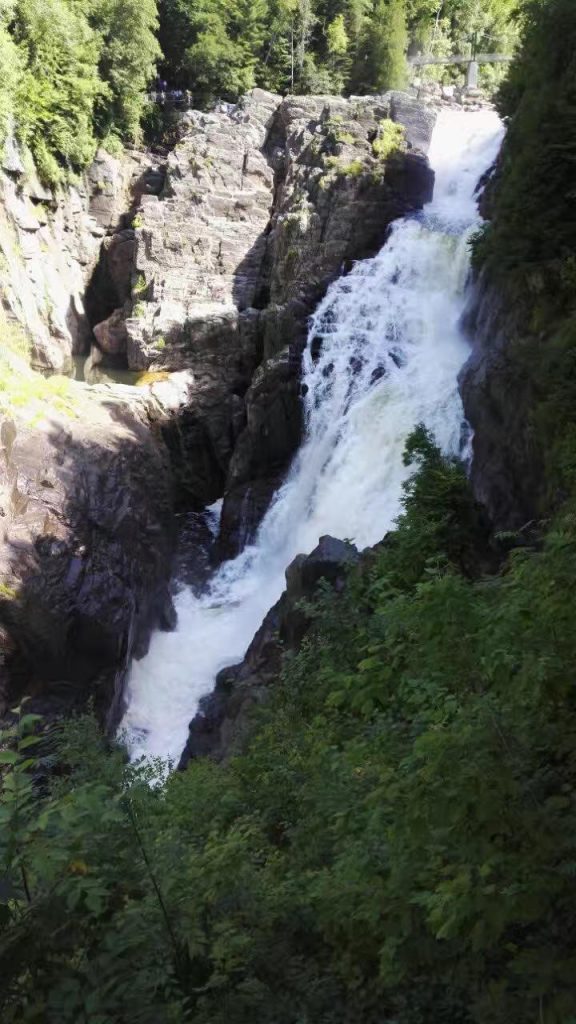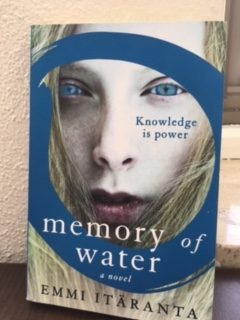By | Par Jisu Jung & Qian Chen
Jisu: Memory of Water is a climate fiction written by Emmi Itaranta. The protagonist, Noria, chooses to inherit her family occupation as a tea master. For a long time, tea masters have been the protectors of water. They have possessed springs and have been responsible for the water level of those springs. As the military have taken over the control of all water sources, most of the tea masters have been deprived of their right to the springs, but not Noria’s family. Living under the condition wherein the Military controls all of the water source taxes, Noria and her father do their job as tea masters keeping history alive while, at the same time, books that are written in the past-world period are isolated from the public. Throughout Memory of Water, both water and books are manipulated by the Military, and in the epilogue, Sandra, Noria’s mother, suggests Noria’s friend, Lian, disclose the research she (Sandra) destroyed to save her daughter, which suggests fighting for the survival of water and information is the way to save the whole village.

Qian: Je pense que le thème le plus important dans le roman est la conservation de l’eau, parce que celle-ci est nécessaire pour maintenir la vie sur Terre. D’ailleurs, l’eau est présentée comme une sorte de trésor magique dans le roman en raison de sa pénurie. Dans le livre, quand le manque d’eau devient de plus en plus grave, la nature humaine refait surface chez les gens, dont certains dévoilent le côté mesquin et égoïste qu’ils cachaient.
Jisu: Yes, I agree. The lack of water actually makes the military more powerful, as they acquire absolute control over the resource which eventually makes it possible for them to suppress information from the public knowledge. However, I think if people had had access to the past-world books, they would have enough knowledge to fight the military.
Qian: Selon moi, même si la population avait eu accès aux livres du monde passé, elle n’aurait pas eu le courage de se battre contre les militaires. Ceux-ci ne contrôlaient pas seulement toutes les sources d’eau, mais également tous les soldats à leur solde. Il aurait été encore plus difficile pour la population de survivre s’ils avaient su que l’humanité avait auparavant le droit de boire de l’eau sans avoir à se limiter.
Jisu: I disagree. I think that in the story, water also symbolizes people’s freedom to speak out against the military. Basically, the military is ruling the country as a dictatorship. People are afraid of the blue circle that the military paints on the door because it means the family has built illegal water pipes, and they have been punished. Therefore, I think the freedom water provided in the past-world period would appeal to young soldiers and encourage them to consider fighting against the military to retrieve the life people had before.
Qian: Je partage ton avis lorsque tu dis que l’eau est un symbole de liberté. Cependant, d’après moi, être assez courageux pour pouvoir se battre contre un dictateur, ce n’est pas une qualité que tout le monde possède. Pour combattre un tyran, il faut plus que de simples villageois – ils n’ont pas d’armes ni de puissantes technologies, et ils sont surveillés par les forces armées. Leur survie dépend pratiquement de leur conformisme.

Jisu: I see where you are coming from, but I think that if they had started fighting against the military, not only people from the villages, but also people from other cities, would have come to join them in their fight. For a historical analogy, the tearing-down of the Berlin wall is a good example: people from the East of Berlin rose up and destroyed the wall even though they were under severe dictatorship in just the way the ending of the story suggests people should have the courage to stand up against censorship or dictatorship.
Qian: Dans le monde actuel, le contrôle de la population par des groupes militaires est aussi toujours d’actualité. Et en apparence moins dramatique que la dictature affichée, le contrôle de l’information se concrétise toujours lorsqu’on censure des livres, d’hier comme d’aujourd’hui. Si on leur coupe l’accès à l’histoire, les gens ne seront pas capables d’avancer, car ils leur faut la connaissance des erreurs du passé pour prendre de nouvelles décisions importantes. De plus, si les gens ne connaissent pas leur histoire, ils peuvent en oublier les droits pour lesquels leurs ancêtres se sont battus, puis les perdre sans le réaliser. D’ailleurs, l’eau est justement la ressource la plus importante aujourd’hui: verra-t-on des groupes militaires tenter de s’accaparer cette ressource dans la réalité, comme ce fut le cas dans Memory of Water?
Révision by | par Alina Orza
